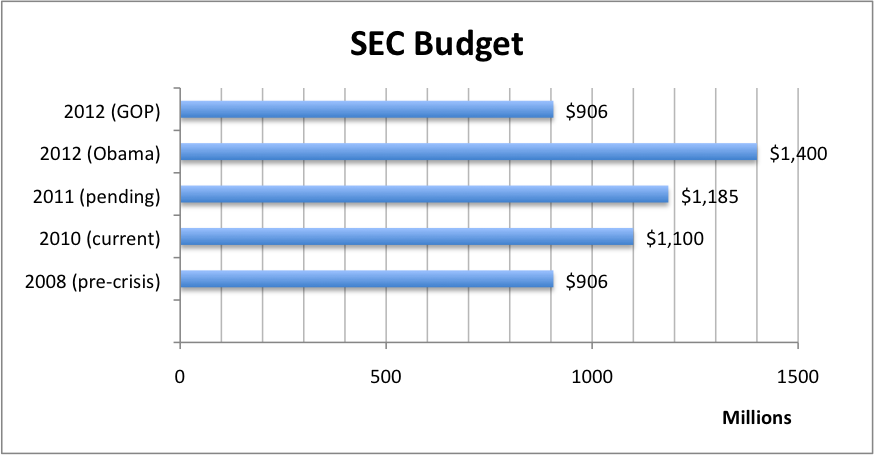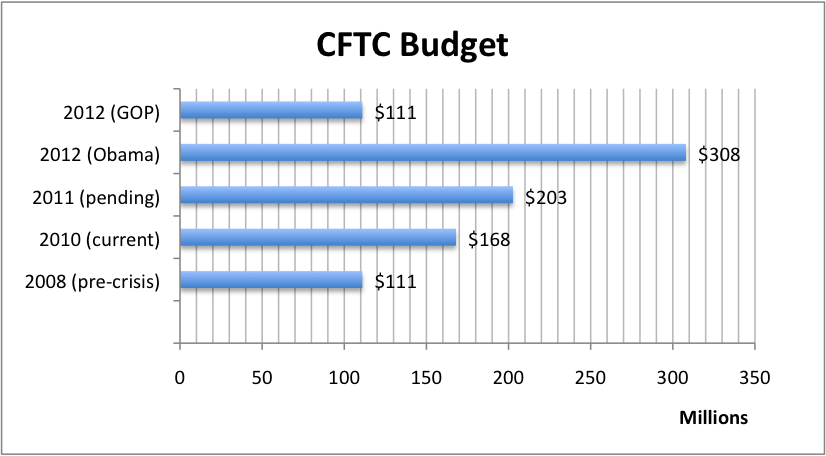Getting the government back to pre-Obama spending is a central tenet of the Republican budget agenda. The GOP’s proposals for 2011 and 2012 would put across-the-board domestic discretionary spending back at 2008 levels and Paul Ryan’s “Path” would freeze it there for five years. For the only two federal financial regulators subject to congressional appropriations, the Securities and Exchange Commission and the Commodity Futures Trading Commission, the budget battles have been a struggle.
Their respective chairs, Mary Schapiro and Gary Gensler, each went before Congress in March to make their cases for more funds and to warn that their new responsibilities under Dodd-Frank, Democrats’ 2010 overhaul of the financial regulatory regime, couldn’t be met at current or reduced spending levels. For Republicans, that’s basically the point. They don’t like Dodd-Frank, but aren’t prepared to launch a full-scale repeal campaign. They argue that onerous regulation is best reined in by fiscal restraint, and that fecklessness — if you ask a Republican about the SEC, the first sentence will almost always include the word “Madoff” — shouldn’t be rewarded with more funds. For Democrats, funding the legislative landmarks of Obama’s first term is sacrosanct.
Now that there’s been a handshake on a 2011 budget that includes billions of dollars in cuts to federal spending, which party got its way? Here are two rudimentary charts showing actual and desired funding levels for the SEC and CFTC:
The top number is the GOP’s ideal, as laid out in Ryan’s plan. The second is Obama’s goal and what the agencies say they need going forward, as detailed in the White House’s 2012 budget. Below that is what the latest deal delivers for 2011, assuming it passes. And the bottom two figures show where the budgets were set in 2010 and 2008 respectively.
As you can see, even amid cuts, Democrats won modest increases in funding for both the SEC, ticking up to $1.185 billion from $1.1 billion, and the CFTC, swelling from $168 million to almost $203 million. It’s not what the Obama administration eventually wants, but it’s definitely a concession from Republicans.
Here’s one more interesting figure: At the end of 2010, commercial banks in the U.S. held $231 trillion in derivatives, comprised in part of the exotic financial instruments that imploded the market in 2008. The 2011 budget will mark the first new spending levels set for the SEC and CFTC since those agencies were tasked with expanded oversight of that market last year.


